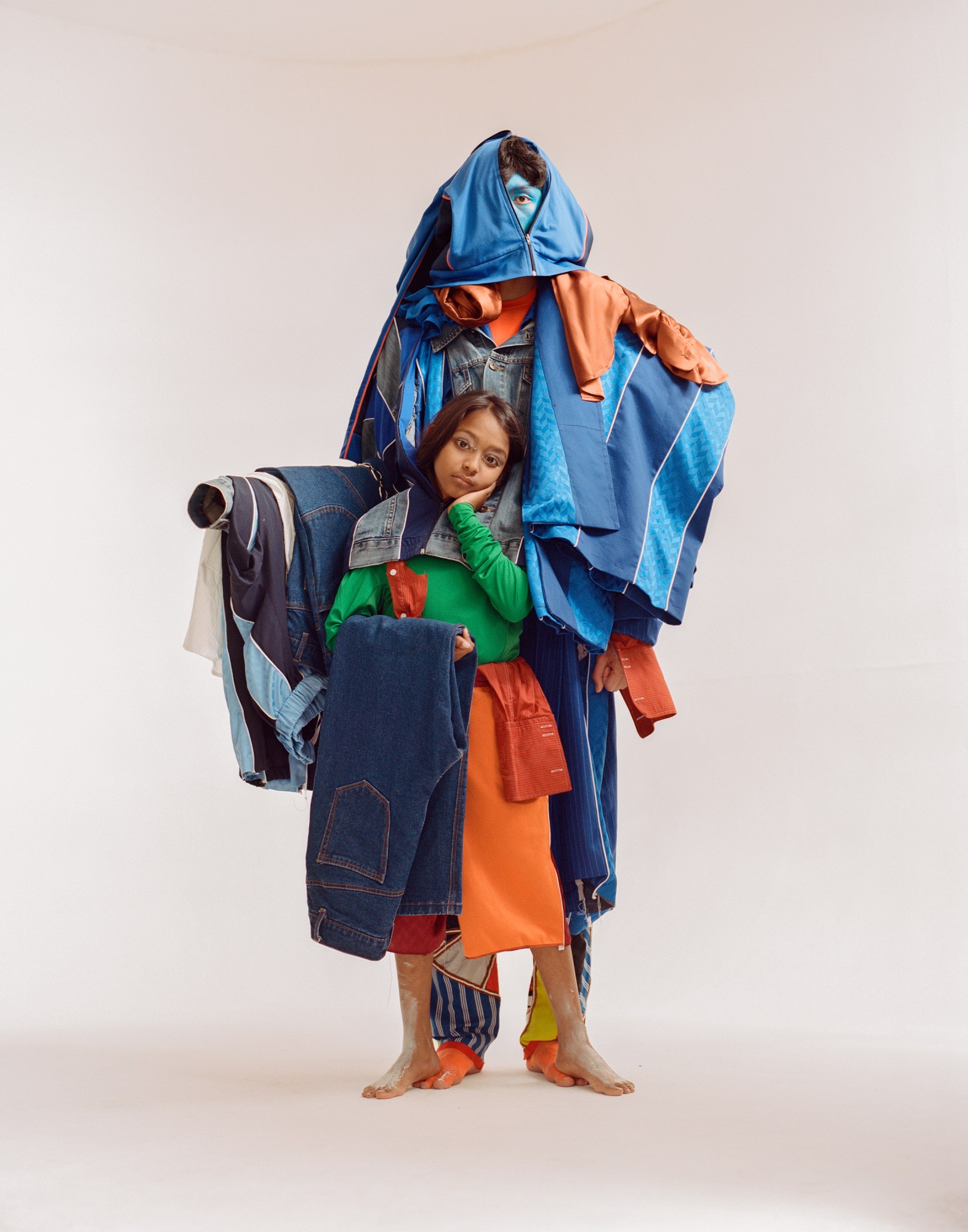Fashion has a colossal waste problem. The western world’s reliance upon fast-fashion — high-speed, low-cost production of cheap clothing — has created a beast that no one is quite sure how to tame. The production of just one T-shirt, it’s reported, creates roughly the same carbon footprint as driving a car for ten miles, and uses 2,700 litres of water in the process. Combine this with the genetically modified cottons and toxic chemicals used in clothing production, and you’ve got yourself an industry that accounts for ten percent of global carbon emissions, second only to oil in polluting the world.
Not only this, there’s a lack of viable options for recycling these relatively cheap clothes once they’re, invariably, thrown out one year later. A recent study found less than around one percent of clothing is recycled. Of the clothing that is “recycled”, much of it is sent to developing countries, which is then sold on for a profit. Indian-Nigerian designer Priya Ahluwalia first noticed this on a family trip back to Nigeria. “I kept noticing street traders wearing various obscure British clothing. For example, I saw one guy wearing a London Marathon T-shirt. The traders walked the highways with such confidence and I decided I wanted to photograph them. After enquiring about where they got their clothes from I discovered a market selling second-hand clothing that had been donated to charities by people in western countries. I was shocked to find that when people donate clothes to charity, they were often being sold for profit. I found out that Panipat [a city north of Delhi] is the global capital of second-hand clothing recycling, so I decided to stay with family in Delhi and visit.”
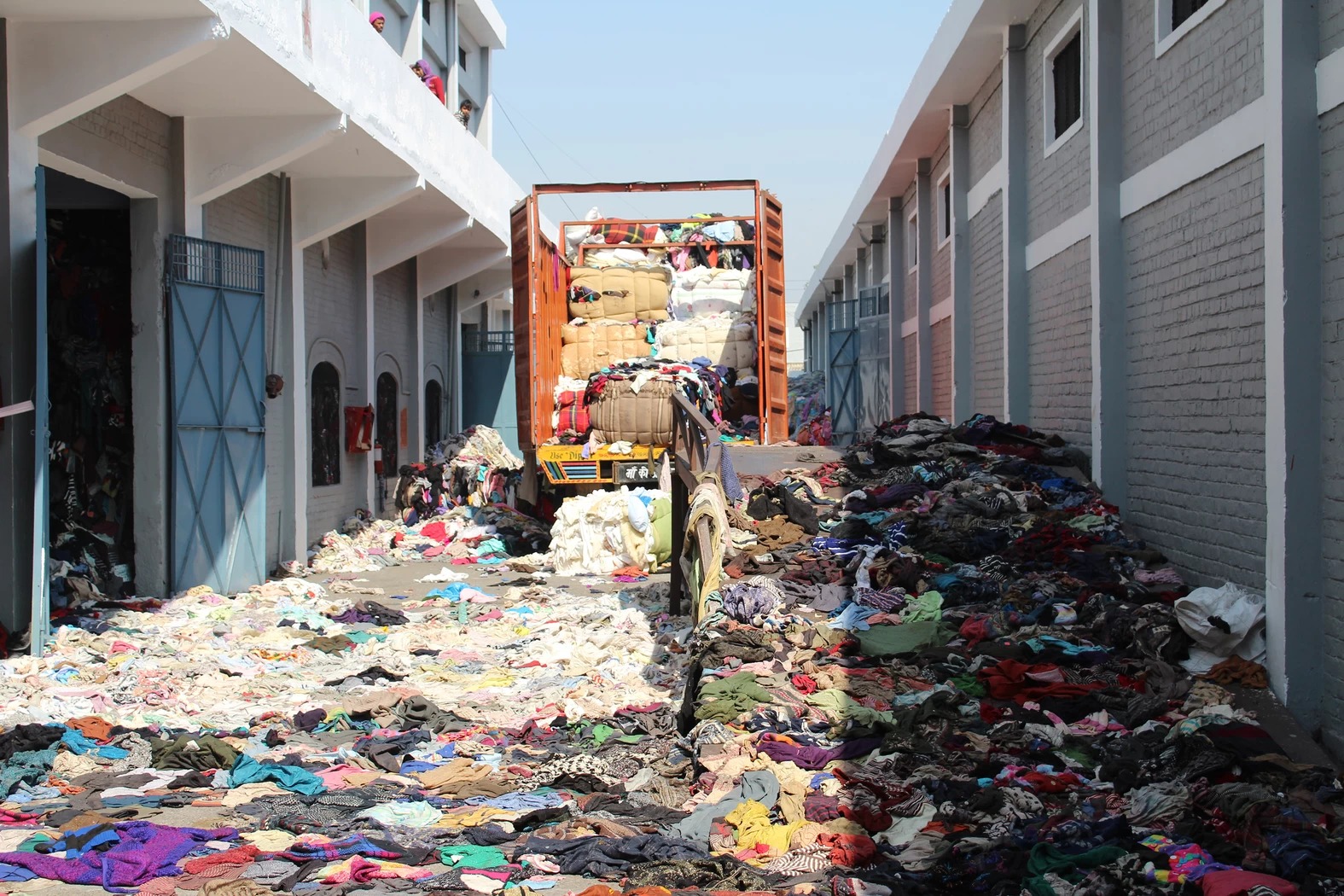
Seeing the extent of the issue and the scale of how many clothes were discarded by the west, Priya decided to start taking photos of the second-hand garments she found across India and Nigeria, in an effort to create visibility around the issue. “I knew I wanted to create a book and raise awareness of what I had found. Coincidentally, Harry from Machine-A saw an Instagram post about my trip to Panipat and suggested we do a project about it.” The result is Sweet Lassi, a photographic exploration of the issue, as well as a showcase of her ethically sourced MA collection. “I wanted to include photographs of my collection in the book as it is really intertwined with the research in the book and is a direct reaction to what I learned. The second-hand clothing trade is good in one way, as it employs people, but the cheap clothing on offer also negatively affects local textile industries. In fact, India has actually banned the import of second hand clothing for resale because of this.”
The book is a powerful, arresting document of an urgent issue as much as a beautiful fashion visual, and features contributions from Sarah Mower MBE, British Fashion Council Ambassador for Emerging Talent, and previous i-D editor Ben Reardon. “Sarah visited my university in the first year of the course and has continued to support me since. I showed her a draft of the book and asked if she would like to be involved in the project. She has always been an ambassador for issues around making fashion a healthier, more enriching environment and industry, so I think we connected on the issues raised in the book and in my project.”
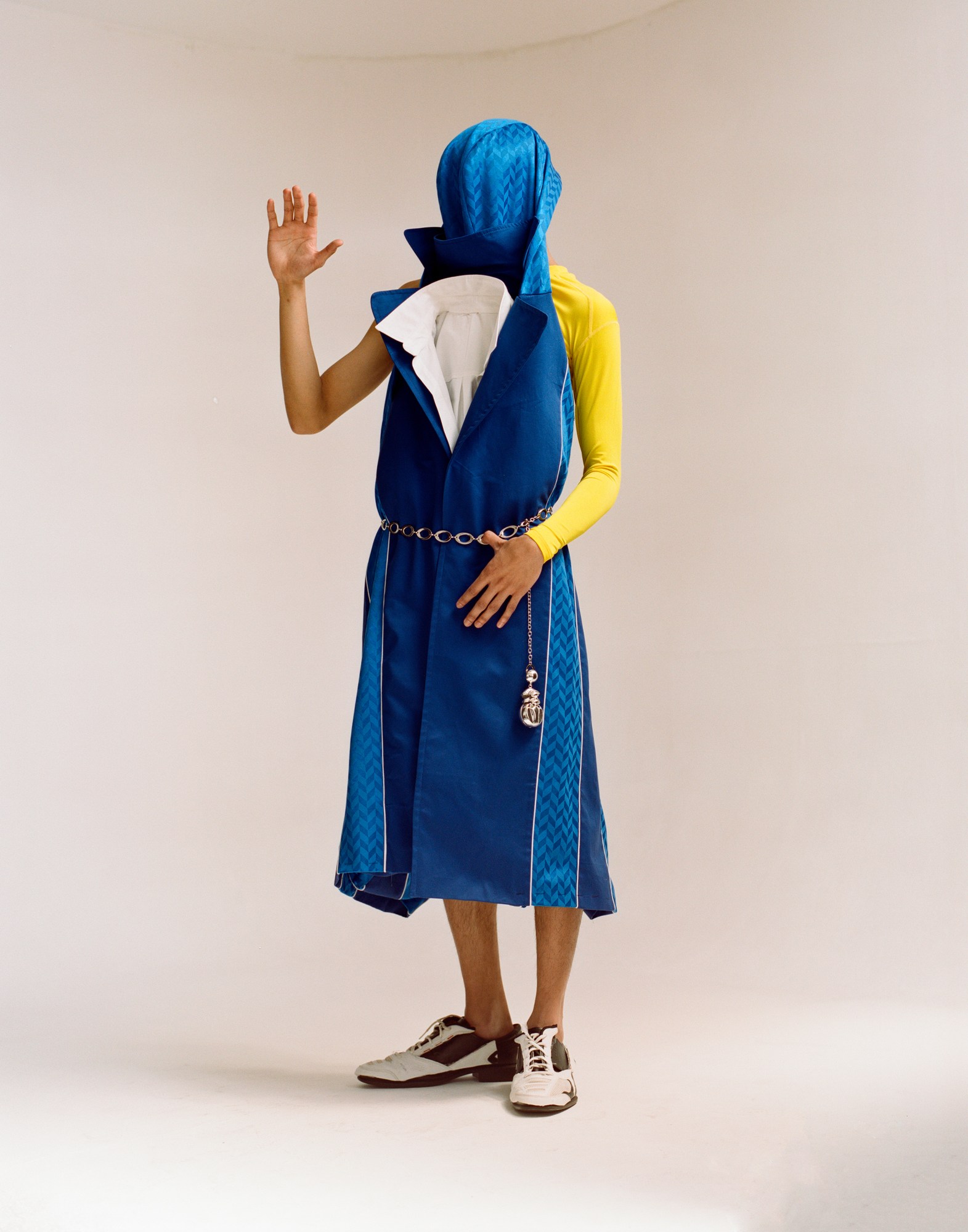
As an environmentally-conscious designer, Priya knows the conflict between wanting to create but not wanting to contribute to the problem. “It is hard to think of an absolute solution without saying that all new production of clothes should just stop altogether. I think humans are creative and expressive by nature and I don’t think stopping that creative outlet through fashion is the answer, but there are many areas that can be vastly improved upon. Overproduction is a huge problem for some companies, which results in so much dead stock. I think there is so much dead stock in the world that could be tapped into and developed by different brands. It is hard though, as everyone is very concerned with seeing something new all the time. In my collection I have aimed to source materials responsibly and have created new patchwork designs using second-hand clothing.”
Like many designers, Priya sees a solution in buying less and buying better. Investing in clothes that can be worn year on year. I think the meteoric rise of Instagram has resulted in some people feeling like they have to buy new clothes for every new picture or post, and fast-fashion companies allow this need to be satisfied. These are clothes that don’t wash well and get thrown away in a heap. I think a small measure is to buy better and keep clothes for longer, try to mend things when possible and have fun with mixing pieces in your wardrobe up.”
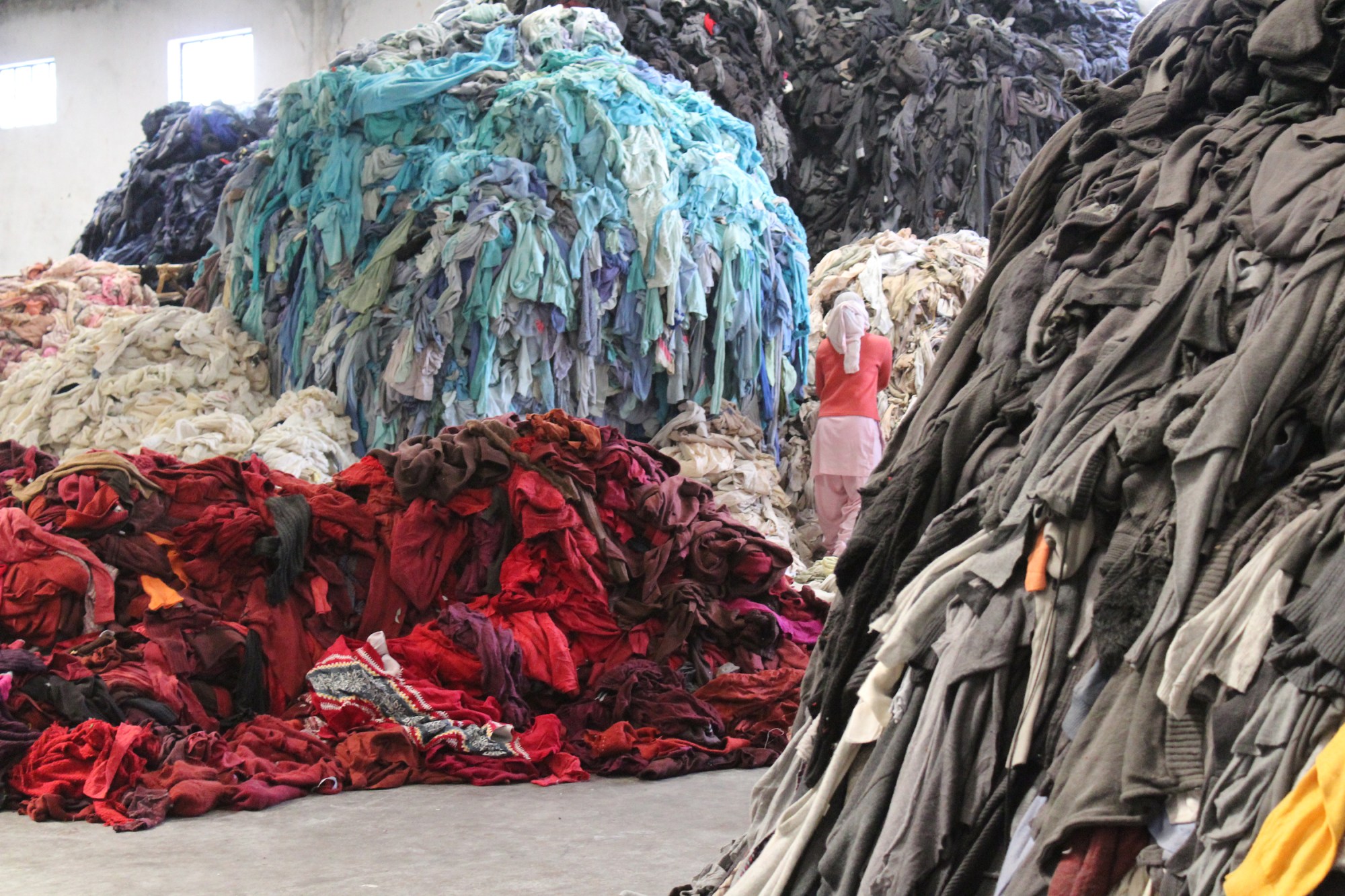

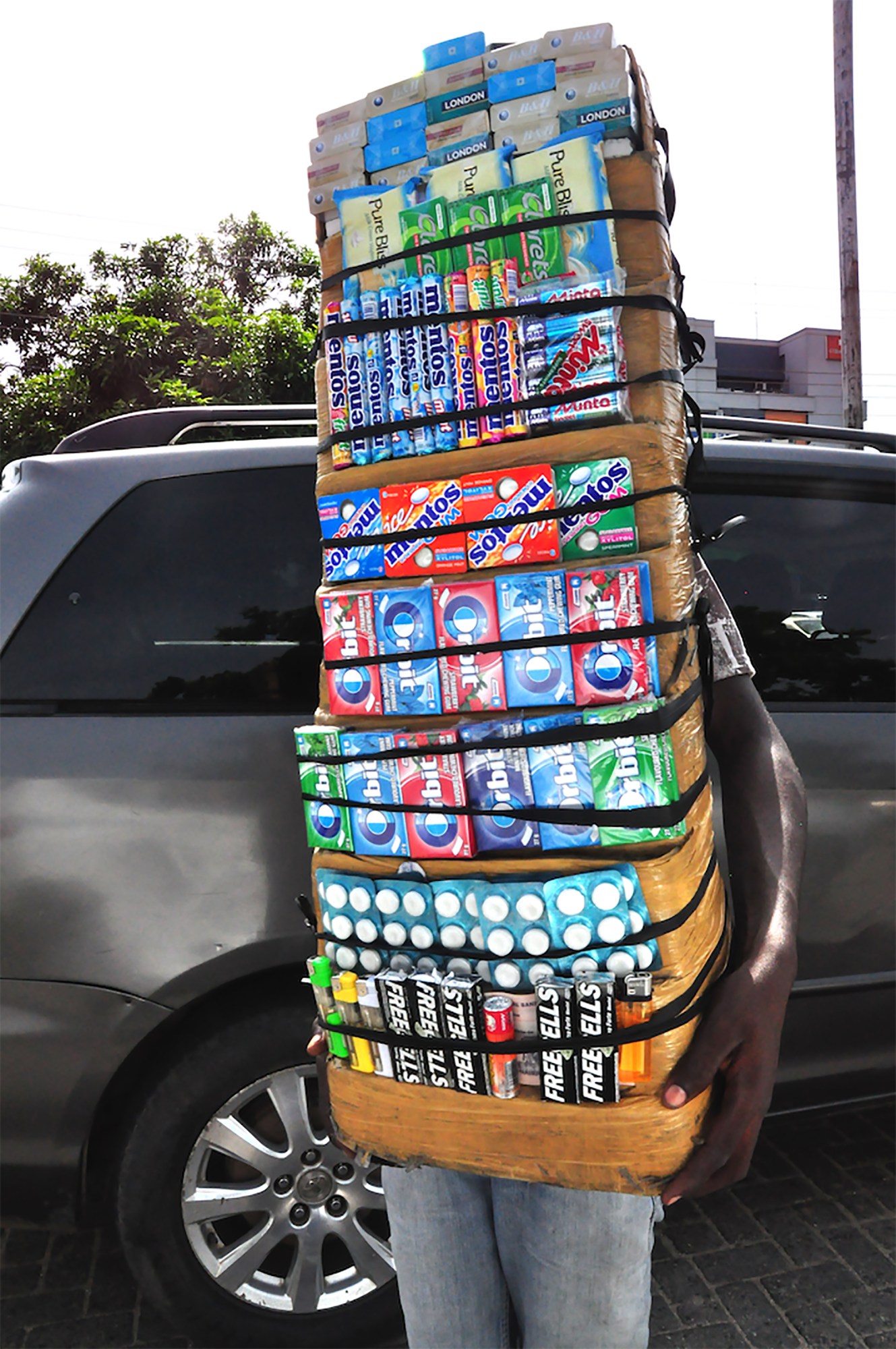
Out today, Sweet Lassi is available to buy at London’s Machine-A, Claire De Rouen and Good News Soho. Limited to 100 copies.
Get the best of i-D straight to your inbox by signing up to our newsletter.
